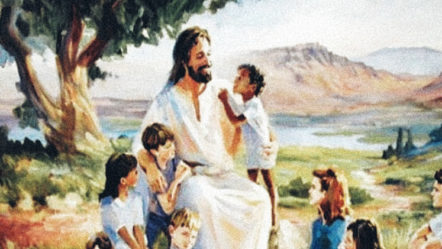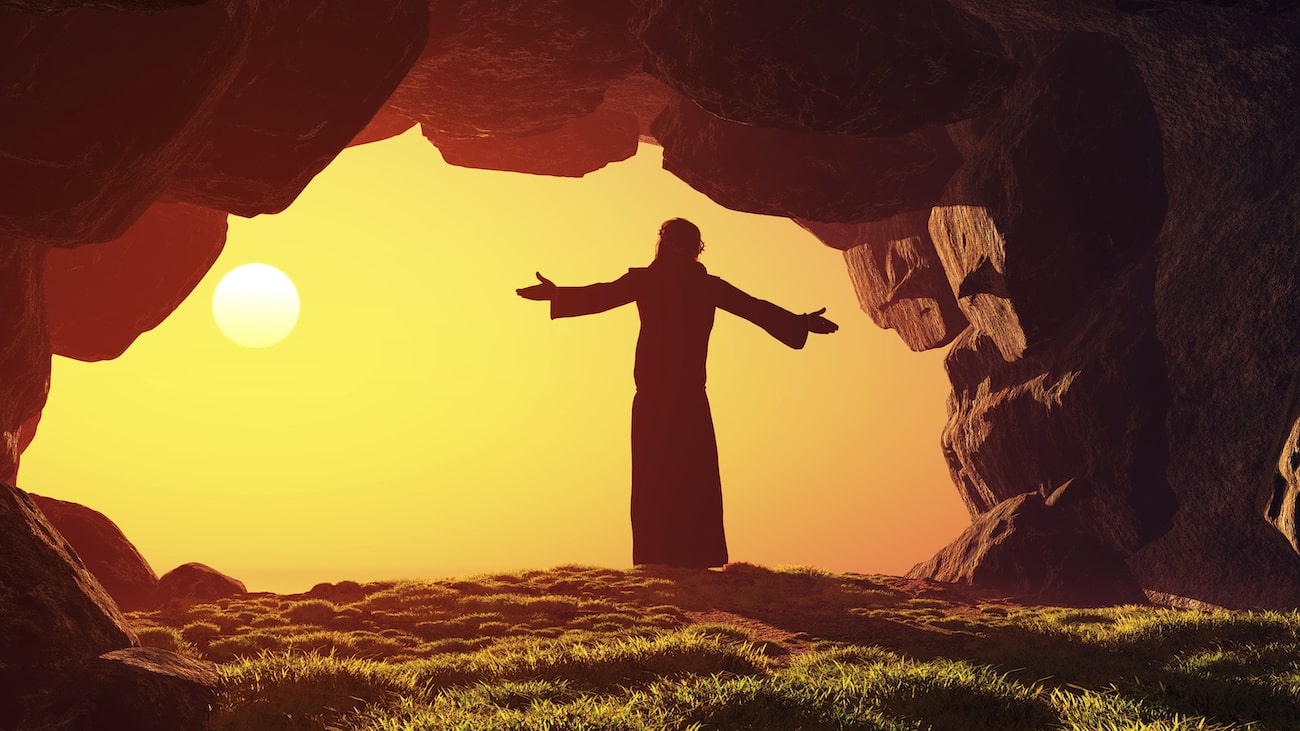Once there was a boy with a disability; he was slightly retarded, and also had cerebral palsy. His name was Jeremy, and he was seven years old. Instead of being placed in a special classroom at his parish school, Jeremy was mainstreamed, which means he was with all the other boys and girls in the 2nd grade. About a week before Easter, the class was talking about the meaning of this feast. The teacher gave each of the students a plastic easter egg, the kind in which candy or Easter gifts are packaged. These were all empty, however, and the teacher said, “Boys and girls, I want you to take these home and find some small item which you think stands for Easter. Put it in the egg, and bring it back tomorrow.” All the students promised to do this— but then the teacher remembered something. She really shouldn’t expect Jeremy to complete this assignment; it would be too hard for him to understand, and he’d just bring back an empty egg. However, it was too late to do anything about it.
The next day all the students brought in their eggs, and the teacher had each of them explain what was inside. Some had little plastic Easter bunnies or candy, some had flower petals, and a few even had stones symbolizing the stone rolled back from the tomb. All the while the teacher was dreading having to call on Jeremy, fearing that he’d embarrass himself. Finally he was the only student left, so she asked, “Jeremy, what does your egg have?” As she feared, the egg was empty, so she said, “I’m sorry, Jeremy, I shouldn’t have asked you to do this; I knew you wouldn’t understand.” Jeremy protested, “I do understand. My egg is empty because it’s the empty tomb. Jesus is no longer there; He’s here”—and Jeremy pointed to his heart. The teacher learned a valuable lesson: not to underestimate people’s ability to understand love. About a week later Jeremy suddenly died. All his classmates were at the funeral, and on his casket there were no flowers. Instead, there were 21 empty plastic Easter eggs. Jeremy had touched the boys and girls of his class in a way no adult ever had; they had all learned important lessons of love from him. Easter is about the greatest lesson of love that anyone has ever given. Jesus died to save us, and He comes to us hoping to be welcomed. At Easter we must respond to the empty tomb with open hearts.
The Gospel for Easter reminds us that, even for those of us who believe, faith is a struggle and an ongoing process. Mary Magdalene believed in Jesus and expected the resurrection; after all, she had witnessed Him raise her own brother Lazarus from the dead. Even so, she was caught off guard and confused when she saw the empty tomb; she thought someone had taken away the Lord’s body. She summoned the two most important apostles: Peter, whom Jesus had appointed as leader of the Twelve, and John, the one most closely united to Jesus by love and friendship. If anyone should have realized what had happened to Jesus, it was them—but the Gospel tells us that they did not yet understand the scriptural prophecies that Jesus would rise from the dead. This Good News seemed too good to be true—but it was. Sometimes we too may act as if we’re overwhelmed by the Christian message, or may only gradually allow the Risen Lord to enter our lives, or may only slowly become aware of His presence among us. The earliest followers underwent this process of opening their hearts; so must we.
Jesus calls us to make sure our hearts are empty of anything that would keep Him from living within us. For instance, if we’re too busy to spend at least a few minutes in prayer every day, we’re not fully allowing Jesus to enter our lives. If coming faithfully to Mass each weekend just doesn’t seem to fit our lifestyle, we haven’t truly opened our hearts to Christ. If we value our possessions or our status more than our faith, we’re not entirely Jesus’ followers. If we place earthly things ahead of God’s will, we haven’t really understood the Good News. If we’re holding onto grudges against other people—family members, relatives, co-workers, or others— we haven’t truly allowed Christ’s peace to fill our lives. If we’re not humble enough to seek God’s mercy and share it with others, our hearts aren’t really open, and we’re not yet an Easter people.
Sometimes it takes a special person like Jeremy to help us remember what Easter is all about. It doesn’t ultimately matter whether we’re talented or important, “normal” or popular, rich or gifted, or even whether we can explain the resurrection in theological terms. What truly matters is the response we make. With Mary Magdalene and the apostles, we must come to believe, even though we don’t understand; with Jeremy we must be able to say, “Jesus isn’t in the tomb—He’s in my heart.”









Is this story true? Either way it brought tears to my eyes. Thank you.
Thank you for your thoughts… great summary of Easter ?